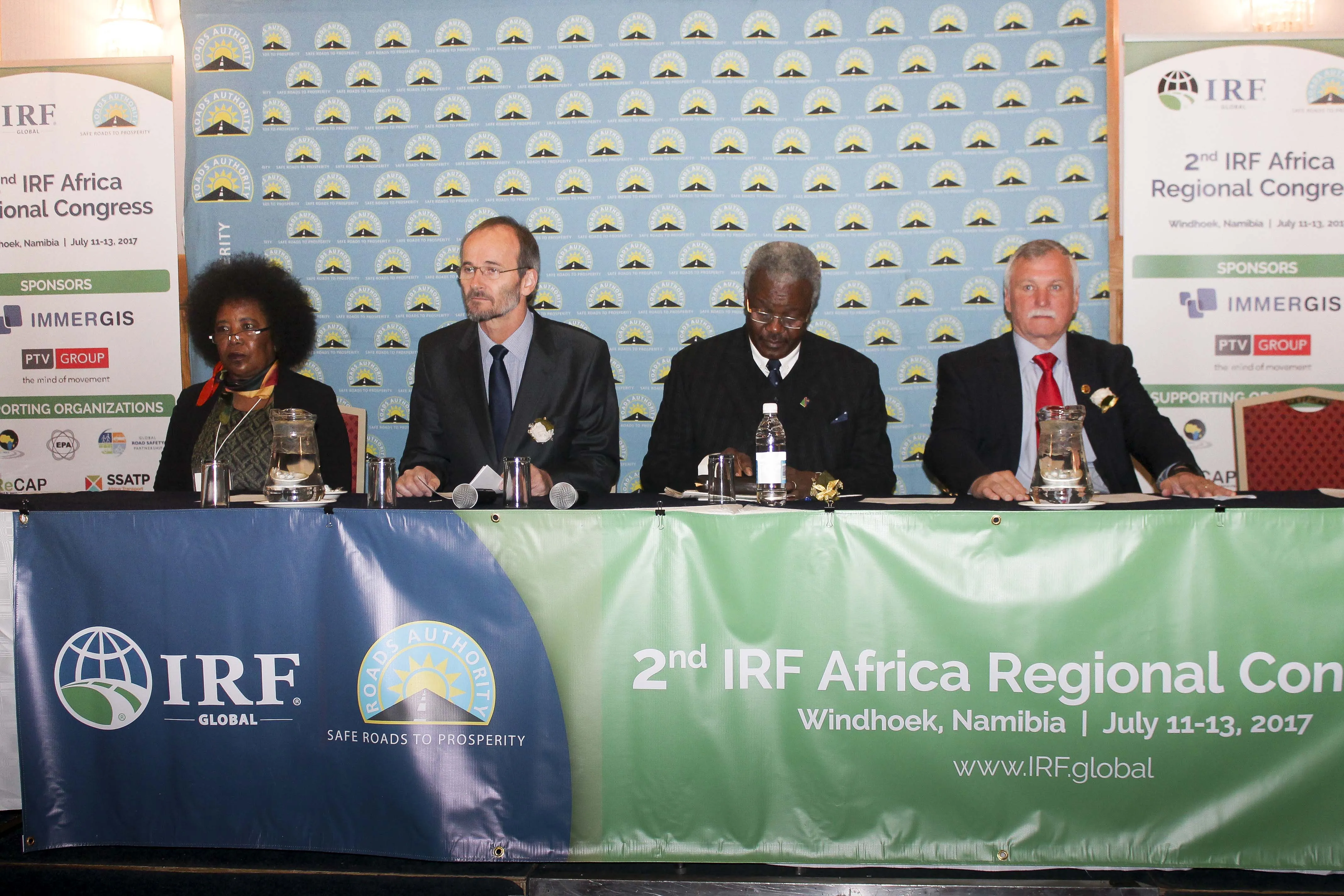London requires a radical new strategy to delivering the transportation development the city will need to cope with its fast growing population. Martin Tugwell, Transport Programme Director for England’s Economic Heartland Strategic Alliance said, “A road network fit for the world’s fifth largest economy cannot be planned from London: it is time for a revolution in approach, one that is focused on meeting our needs.”
November 13, 2015
Read time: 4 mins
London requires a radical new strategy to delivering the transportation development the city will need to cope with its fast growing population. Martin Tugwell, Transport Programme Director for England’s Economic Heartland Strategic Alliance said, “A road network fit for the world’s fifth largest economy cannot be planned from London: it is time for a revolution in approach, one that is focused on meeting our needs.”
He will highlight his views at8269 Highways UK, the major new event bringing together key players in the UK’s road transport sector at ExCel, London on 25th-26th November.
An unlikely revolutionary in many ways, Martin is passionate about the need to democratise our transport planning. He believes that the Alliance – made up of the ‘heartland’ of Oxfordshire, Buckinghamshire Northamptonshire, Milton Keynes, Bedford, Central Bedfordshire and Luton – can show the rest of the country the way forward.
“For too long road planning has taken a view from above,” he said, “a big picture approach that too often focuses on the major strategic networks that are the remit of8100 Highways England. But we need to take the view from the driver’s seat if we are to deliver a network that meets our needs: a network that is both flexible and resilient. We need to start seeing our roads as being a vital piece of the infrastructure that enables growth.”
The challenge made by Tugwell and the Strategic Alliance is to radically re-imagine what we mean by a major road network, one that reflects the way roads are actually used by each and every one us, whether we are a lorry driver, a businessman or local resident – recognising of course that in many instances that these are often one and the same person. This is a priority because the lives of local road users and wider connectivity are intertwined and success is essential for the broader economic interests of the country. As Tugwell said, “When you consider that nearly every piece of cargo being brought into the UK will have to travel across the Alliance area at some point on its journey you begin to understand the huge economic significance to us and the rest of the county of getting our planning right. We are as significant to the UK’s economy as any major city conurbation; our competitors are global. Getting our transport network right not only helps us, but helps the wider UK economy compete globally.”
This is why the Alliance is lobbying to strike a deal that will see the relationship with Government redefined. Working sub-nationally the Alliance will empower the partners to deliver efficiencies through sharing of services and expertise, whilst speaking with a single, clear voice in partnership with government agencies will address the knowledge deficit. Whitehall does not have the fine-grained local knowledge and understanding that is needed for effective planning beyond major strategic highways. The people who have that knowledge are the people who live and use the network every day, who rely on them all the time for their businesses, for their jobs, for their family life.
To make that local knowledge work in delivering the solutions needed for the future, more radicalism will be needed. This is a move away from the assumption that the public sector is best placed to drive innovation in transport, to an enthusiastic embrace of technological entrepreneurship.
Tugwell said, “We need to create open data platforms, ones that knock down the barriers to innovation, giving entrepreneurs access to the data they require to create solutions that are really sensitive to local needs.”
He cites Uber as a good, if not uncontroversial, example of what happens when private sector creative energy gets to grips with a public transport problem:
“It has changed everything because it responded to what people were looking for, not what planners think they should need. You don’t need to own the problem and the solution.
“Access to information drives innovation. The public sector needs to set the framework, but we also need to harness the creative energies of the private sector to help us develop and deliver solutions. Open data can make that happen: the public sector must put its cards on the table and invite entrepreneurs to use them to deliver innovation. It is the veritable win-win scenario: innovation and creativity is essential if we are to have a truly integrated transport system focused on the needs of the user.”
What Tugwell and the Strategic Alliance are attempting should change the face of transport planning in the UK forever. But this is not the first time that pioneering solutions to the old problem of the regions versus the centre have been set out with great enthusiasm.
He will highlight his views at
An unlikely revolutionary in many ways, Martin is passionate about the need to democratise our transport planning. He believes that the Alliance – made up of the ‘heartland’ of Oxfordshire, Buckinghamshire Northamptonshire, Milton Keynes, Bedford, Central Bedfordshire and Luton – can show the rest of the country the way forward.
“For too long road planning has taken a view from above,” he said, “a big picture approach that too often focuses on the major strategic networks that are the remit of
The challenge made by Tugwell and the Strategic Alliance is to radically re-imagine what we mean by a major road network, one that reflects the way roads are actually used by each and every one us, whether we are a lorry driver, a businessman or local resident – recognising of course that in many instances that these are often one and the same person. This is a priority because the lives of local road users and wider connectivity are intertwined and success is essential for the broader economic interests of the country. As Tugwell said, “When you consider that nearly every piece of cargo being brought into the UK will have to travel across the Alliance area at some point on its journey you begin to understand the huge economic significance to us and the rest of the county of getting our planning right. We are as significant to the UK’s economy as any major city conurbation; our competitors are global. Getting our transport network right not only helps us, but helps the wider UK economy compete globally.”
This is why the Alliance is lobbying to strike a deal that will see the relationship with Government redefined. Working sub-nationally the Alliance will empower the partners to deliver efficiencies through sharing of services and expertise, whilst speaking with a single, clear voice in partnership with government agencies will address the knowledge deficit. Whitehall does not have the fine-grained local knowledge and understanding that is needed for effective planning beyond major strategic highways. The people who have that knowledge are the people who live and use the network every day, who rely on them all the time for their businesses, for their jobs, for their family life.
To make that local knowledge work in delivering the solutions needed for the future, more radicalism will be needed. This is a move away from the assumption that the public sector is best placed to drive innovation in transport, to an enthusiastic embrace of technological entrepreneurship.
Tugwell said, “We need to create open data platforms, ones that knock down the barriers to innovation, giving entrepreneurs access to the data they require to create solutions that are really sensitive to local needs.”
He cites Uber as a good, if not uncontroversial, example of what happens when private sector creative energy gets to grips with a public transport problem:
“It has changed everything because it responded to what people were looking for, not what planners think they should need. You don’t need to own the problem and the solution.
“Access to information drives innovation. The public sector needs to set the framework, but we also need to harness the creative energies of the private sector to help us develop and deliver solutions. Open data can make that happen: the public sector must put its cards on the table and invite entrepreneurs to use them to deliver innovation. It is the veritable win-win scenario: innovation and creativity is essential if we are to have a truly integrated transport system focused on the needs of the user.”
What Tugwell and the Strategic Alliance are attempting should change the face of transport planning in the UK forever. But this is not the first time that pioneering solutions to the old problem of the regions versus the centre have been set out with great enthusiasm.









